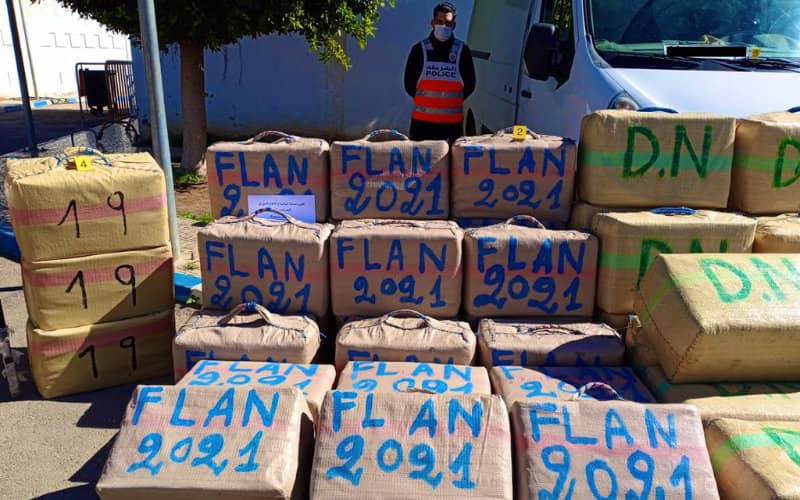Morocco Urges Global Cooperation to Combat Drug Trafficking at UN Commission

Morocco seized the opportunity of the 64th session of the Commission on Narcotic Drugs (CND) in Vienna to call for very strong sub-regional, regional and international cooperation in the face of the global drug problem. For the kingdom, this global scourge must be among the priorities of the post-Covid 19 recovery agendas and strategies.
This mobilization is imperative because "the drug problem remains a shared responsibility and must be assumed, in a multilateral framework [...] as emphasized in the political documents negotiated and adopted by consensus over the past decade," said Azzeddine Farhane, the ambassador, permanent representative of Morocco to the international organizations in Vienna, during the debate of the General Segment of the session (April 12-16).
In the name of the principle of shared common responsibility, the ambassador marked his country’s commitment to strengthening the fight against all illicit forms of drug trafficking during the Covid and post-Covid-19 period, in order to uphold the ideal of "no one is left behind." With figures to back it up, the ambassador laid out Morocco’s achievements, namely the efforts made by the authorities against the illicit trafficking of narcotics and psychotropic substances as well as the seizures made: more than 843 tons of cannabis resin, 48.45 million units of psychotropics, 2.2 million units of ecstasy and more than 3 tons of cocaine and about 20 kg of heroin.
In these times of health crisis, the kingdom has further strengthened inter-agency coordination, as well as operational cooperation with friendly countries, in order to thwart the criminal plans of illicit drug trafficking networks that have found in this crisis an opportunity to convey drugs to their destinations.
What about access to treatment for addicts? Thanks to the Morocco - INCB (International Narcotics Control Board) partnership for a good supply of necessary substances, the Moroccan authorities, said Ferhane, were able to ensure the monitoring of the supply of controlled substances, thus preventing their diversion for illicit purposes. And then, thanks to the collaboration with other departments, particularly the Ministry of National Education, Vocational Training, Higher Education and Scientific Research, school environments have been made aware of the risks and harmful consequences of drug and psychotropic substance use.
Given that drug trafficking is essentially transnational, only cooperation, mutual assistance and exchange of information between the countries concerned can overcome it, "for a world free of drugs," he concluded.
Related Articles
-

Illegal Beach Sand Mining Near Tangier Sparks Environmental and Economic Outcry
4 September 2025
-

Surveillance Footage Exposes Tourist Robbery Ring in Tangier Court Drama
4 September 2025
-

Rif Protest Icon’s Father Dies: Ahmed Zefzafi’s Passing Reignites Hirak Movement Debate
3 September 2025
-

Gulf Tourists and Moroccan Women Arrested in Marrakech Prostitution Sting
3 September 2025
-

Groom’s Secret Past Exposed: First Wife Crashes Moroccan Wedding, Halting Ceremony
3 September 2025